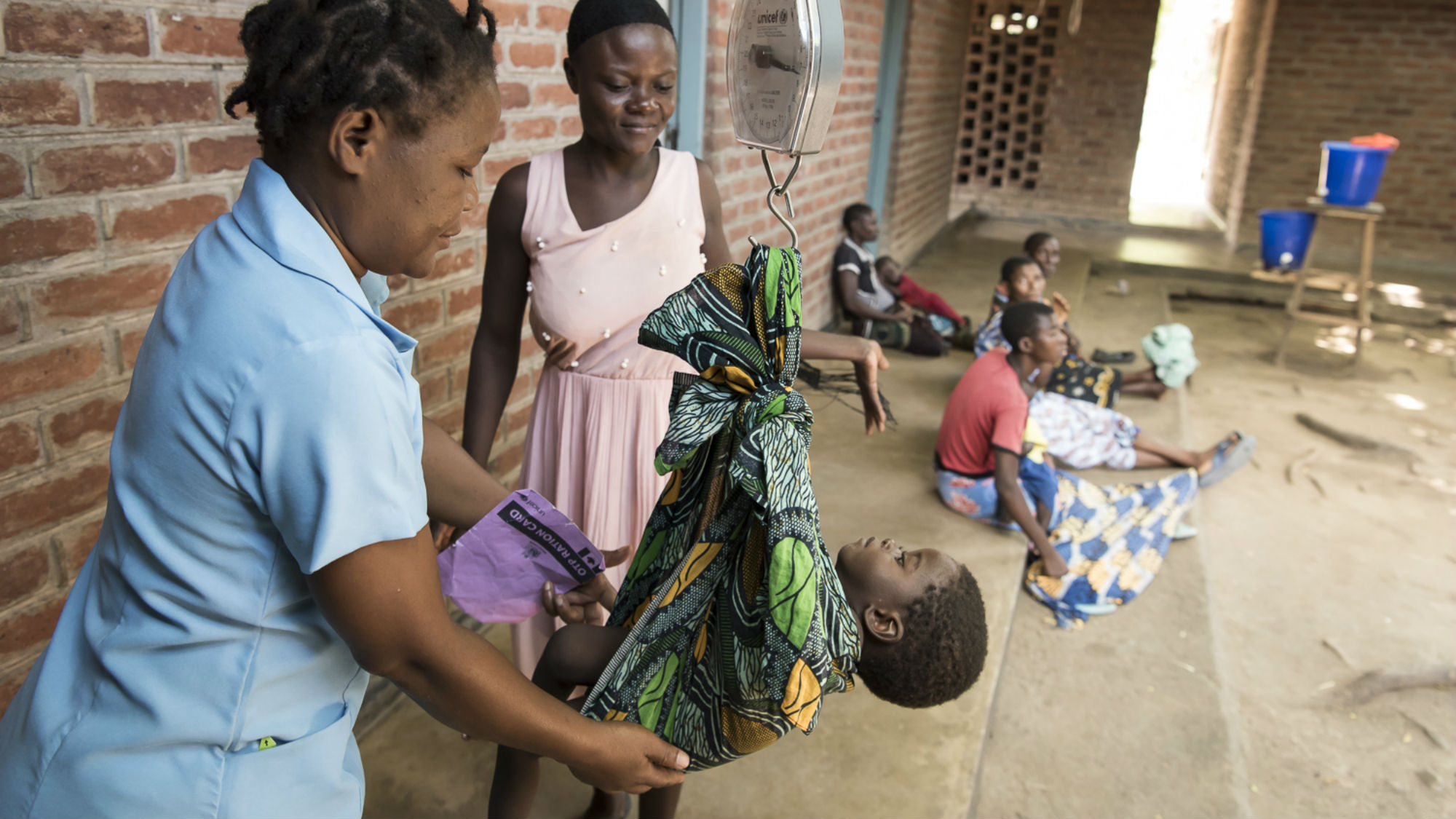This is what it feels like when you can’t afford to feed your baby
Agnes Muliri, 25, lives in Malawi with her husband and two children. For the last five years, Malawi has been in a state of famine. This is one woman’s story.

Agnes Muliri, 25, lives in Malawi with her husband and two children. For the last five years, Malawi has been in a state of famine. This is one woman’s story.
‘My house in Malawi is made of mud and grass – mud walls with a grass thatched roof, and just one room. Everything happens in that room: my husband and I sleep there, next to our two children. We receive guests there. My babies play there. If we’re not working, we sit there. And whenever people ask me how I know we’re poor, I tell them to look at our house. It’s so small. When it rains, the roof leaks – letting water trickle down through the grass reeds, and softening the walls. I can’t even make myself look nice. I own five skirts, and five blouses, and that’s it. Only poor people live like this.
But my house isn’t the problem. It’s bigger than that. I’m not the only one living like this. There are five other families in walking distance, and everyone is in the same situation. Some people manage to find regular work selling sweet beer or fritters on the street, but most of us don’t. Every single day, you wake up and wonder whether you’ll make any money – whether you’ll be able to afford to feed your children. A lot of people in the community try to get work helping out on local farms, but the recent drought was so bad that even that’s not an option any more – we couldn’t harvest anything at all. Instead, I try to find odd jobs here and there in gardens around the area. But it isn’t easy, and on days when there isn’t work, my family goes to bed hungry.
Living through a famine is unlike anything I’ve ever experienced before. Back when things were easier, I’d spend my afternoons preparing food – usually nsima with vegetables, and maybe even some small fish. But it’s getting harder and harder to put food on the table. We’re already surviving on one meal a day, but even that is becoming increasingly difficult at the moment. We still have water – I wake up at 5:30am every morning to make three trips to the borehole and collect enough for my children to drink. I worry about them constantly. My daughter has had to stop going to school because she was too weak with hunger. That makes me feel terrible, like I’m failing them somehow. Sometimes, if my mother-in-law has food, they can eat there. On other occasions our neighbours are generous, and share whatever they have with my babies. But it’s not enough. Most of the time, they’re hungry.
My son, Chilufa, is only 12 months old, but a few months ago he was so acutely malnourished, I had to take him to a UNICEF clinic and beg them for help. They gave me emergency sachets of food, but I found the whole process so embarrassing – imagine having to tell strangers that you can’t afford to feed your baby! But I didn’t have any alternatives. If I hadn’t asked for help, I don’t know what would have happened to him. I’m trying my best to make sure it never happens again, but sometimes it feels like it’s out of my hands. There just isn’t any money. Even yesterday, I couldn’t afford to feed my family. In the end, a neighbour gave us a little bit of papaya.
When you’re living through a crisis like this, everyone has to pull together. We’re poor, but we’re not alone. If you need anything, ever, then somebody is on hand to help. It doesn’t matter what your social status is, or how much money you have – if someone in your family is sick, or dies, then everyone in the community is there for you. And I do believe things will get better – recently, I’ve seen more and more houses being built with bricks and corrugated iron roofs. That has to be a sign that things are changing. At least, I desperately hope it is. But sometimes, I look at my children and I feel so sad. My parents couldn’t afford to pay for me to go to school, so I had to leave when I was in Year Three. I’ve forgotten everything I learned, and I can’t even read or write. All I want for my children is food and education, but already my daughter is following the same path.’
Malawi Famine Facts
- Facing multiple challenges such as food shortages, flooding, a stagnant economy and prolonged drought, the need of food aid in Malawi is crucial.
- It’s thought that over 50 per cent of Malawi’s population is living on less than £1.50 a day.
- Last year, over 4,000 cases of severe malnutrition were recorded across the country.
- Three sachets of emergency food – or RUTF (Ready to use Therapeutic Food) – costs £1.
- MSC Cruises and UNICEF joined forces in 2009 to establish the global ‘Get on Board for Children’ initiative, which encourages MSC Cruises guests across the whole fleet to make a contribution to UNICEF. To date, over 6,000 children have been treated in Somalia, over 9,000 in South Sudan and Ethiopia and nearly 16,000 in Malawi.
Marie Claire Newsletter
Celebrity news, beauty, fashion advice, and fascinating features, delivered straight to your inbox!
-
 How Ben Affleck feels about dating after his divorce from Jennifer Lopez
How Ben Affleck feels about dating after his divorce from Jennifer LopezHe's taking it slow
By Iris Goldsztajn
-
 Dior travels to Kyoto for a cherry blossom-inspired fashion show
Dior travels to Kyoto for a cherry blossom-inspired fashion showHere's everything you need to know
By Clementina Jackson
-
 Prince Harry's calls and letters to King Charles 'go unanswered,' source claims
Prince Harry's calls and letters to King Charles 'go unanswered,' source claimsThings aren't looking up between the royals
By Iris Goldsztajn